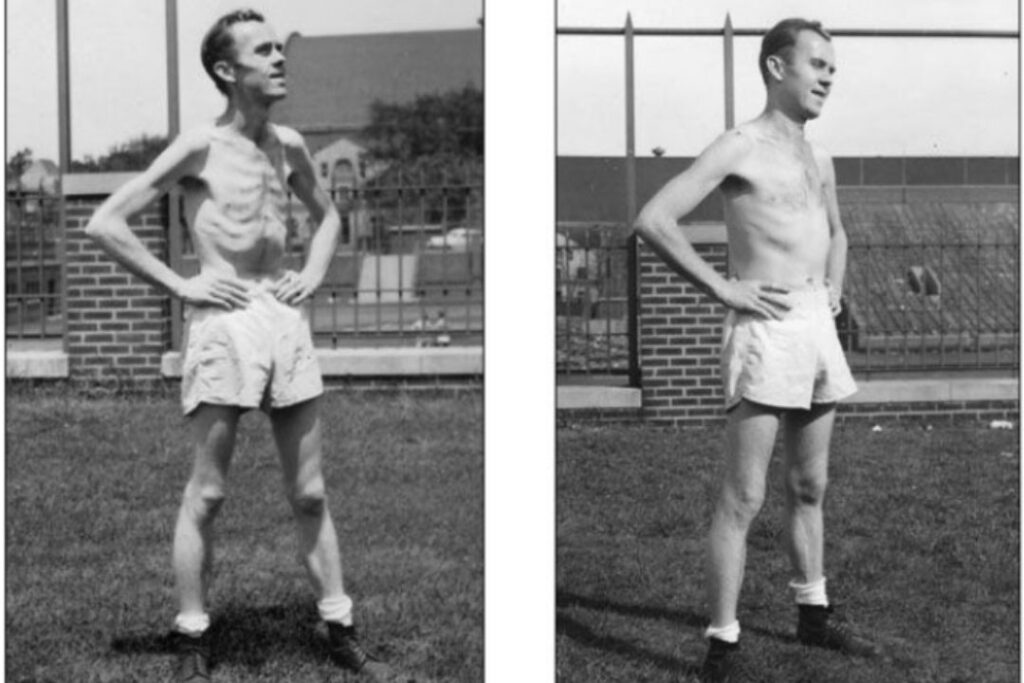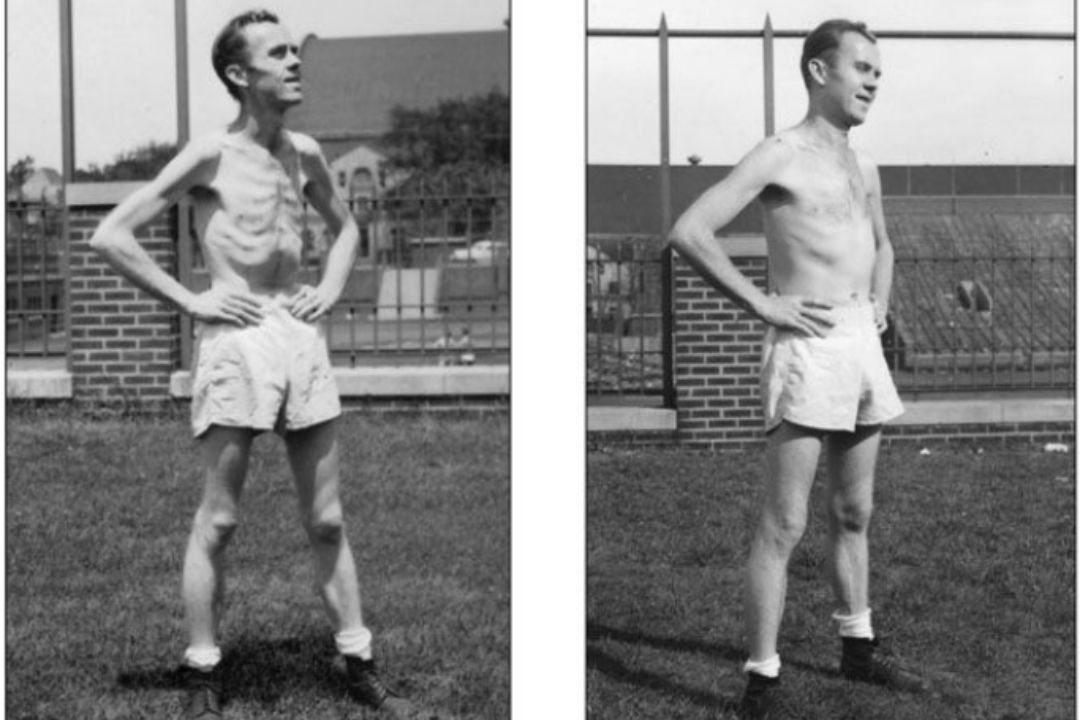
This is a picture of a starving man.
He willingly participated in a study back in the 1940’s where he voluntarily chose to eat no more than 1500 calories each day for a period of 5 months.
During that period, he, and the many other men who participated, lost an average of 25% of their total body weight!
And that’s a lot of weight.
Now, I’m sure you’ve seen photos like this before (POW’s, starving people in third world counties, etc.)
But from time to time, I believe we need a reminder of what starvation truly looks like.
Why?
Because there is an absurdly inaccurate claim that many in the fitness industry like to push.
The claim is that when a person tries to lose weight by restricting calories, their body goes into “starvation mode” and holds on to body fat in an effort to protect them.
As you can see, it’s complete and utter nonsense.
REAL “starvation mode” is what you see in the photo above.
It’s when your body is literally starving, and burning off all of your tissue (fat AND muscle) in an effort to give you enough energy to survive.
It’s brutal.
It’s horrific.
And the reality is that few (and possibly none) of us have ever experienced anything like this before.
So why, then, do people so often believe they are eating SO little, and yet, STILL not losing weight?
The answer is simple…
It’s because the vast majority of people have absolutely no idea how much they’re eating or expending when it comes to energy.
Most people have no idea how many calories are in the foods they eat.
Most people have no idea how to quantify the amount of food they eat.
Most people have no idea how many calories they’re burning via exercise and movement.
Most people have no idea that drinking a lot of water or retaining water (via high sodium foods) can lead to weight gain (yes, really).
Most people don’t consistently weigh themselves enough to establish a pattern.
And, even if a pattern is established, they fail to recognize it.
The simple reality is that most people simply don’t have a good way to gauge where they are.
They may eat next to nothing one day, not lose any weight, get frustrated and then binge only to have their weight increase the following day.
And then guess what happens?
They blame the lack of food and “starvation mode” for their lack of progress.
It’s not their fault.
But it’s the hard truth.
If you’re not losing weight, you’re not starving.
Period.
You’re simply eating too much or not being active enough.
The only exception would be illness or a medical condition, which is exceptionally rare.
And the only reason this myth still exists is because the fitness industry has done too little in trying to dispel it.
You see, the fitness industry is terrible at providing quality, science-backed information to the masses.
But I’d like to change that.
I want to bring the truth back to as many people as possible.
I mean, this starvation study was done nearly 80 years ago!
We’ve known a long, long time that “starvation mode” (aka, metabolism shut down) simply doesn’t exist.
Anyone struggling to lose weight or looking to improve their health/fitness needs to hear this.
The constant wheel spinning has to stop.
And you can help.
All you need to do is share this article to at least one person you know would benefit from it.
That’s it.
We need to get the truth out there so people can stop wasting their precious time on bogus solutions and actually start losing weight and improving their lives.
You with me?
Then just share this post (via email, text message, or social media) with as many people as you can.
Thanks, and before I sign off – one last thing:
Don’t even think about trying to starve yourself to lose weight.
Yes, it clearly works, but it’s TERRIBLE for your health and not sustainable in any way, shape, or form.
In an upcoming article, I’ll explain the best and easiest way to lose weight possible.
